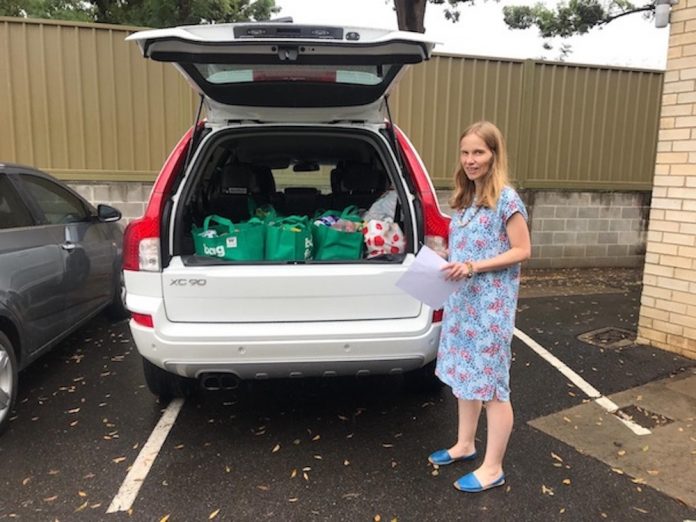The Covid-19 crisis is affecting charities in ways that they have not seen before. Jesuit Refugee Service (JRS), which provides services to over 3,000 refugees and asylum seekers a year in its two centres at Parramatta and Westmead, is in urgent need of donations of food, money and volunteers.
In the last few weeks, as the effects of the pandemic have started hitting home, JRS has had a two-fold increase in demand as refugees and asylum seekers lose jobs within the casual labour market and find that they are ineligible for Centrelink or government assistance. At the same time, JRS’s very committed volunteer base has decreased as those who have health issues or are over 70 practise self-isolation.
Carolina Gottardo, JRS’s director, said: “Basically we are seeing so many people that have lost their jobs and have got literally nothing to eat or no money for medicines and are at imminent risk of homelessness. What is very upsetting is that the people that we support are not covered by any of the packages from the government. So, they cannot go to Centrelink or they cannot be benefitted by any of the rescue packages.
“We are seeing a lot of people who were actually doing well and who we were supporting in the past to get jobs; they had little money but they were surviving, and we are seeing them back into relying on charity.”
Ms Gottardo said that while there had always been suicidal ideation among the refugees and asylum seekers that JRS helped, caseworkers were now noticing a ten-fold increase, and that most of the cases they dealt with were now flagged with a red flag.
Donations have decreased because people are not leaving their homes in order to donate and the places that used to provide donated goods include parishes and schools that are either closed or operating on a restricted basis.
Given these circumstances, JRS is only running essential services: its foodbank, emergency services, and casework by phone.
Food is now being delivered to people’s homes by volunteers.
JRS needs donations of money, food, and hygiene items, as well as volunteers to work in its western Sydney centres as drivers, dispatchers, food packers, and to make phone calls.
To donate money which will replenish JRS’s foodbank, pay for medication, rent, and to support women out of domestic violence situations. Please call 9356 3888, email jrsreception@jrs.org.au or visit www.jrs.org.au/donate-now/.
To donate essential food and hygiene items – email amelia.savage@jrs.org.au
To volunteer – email jane.turner@jrs.org.au
Follow JRS Facebook and Twitter pages for updates on the situation for refugees and people seeking asylum and how JRS responds.
JRS Australia’s head office is in Kings Cross – see https://www.jrs.org.au/





